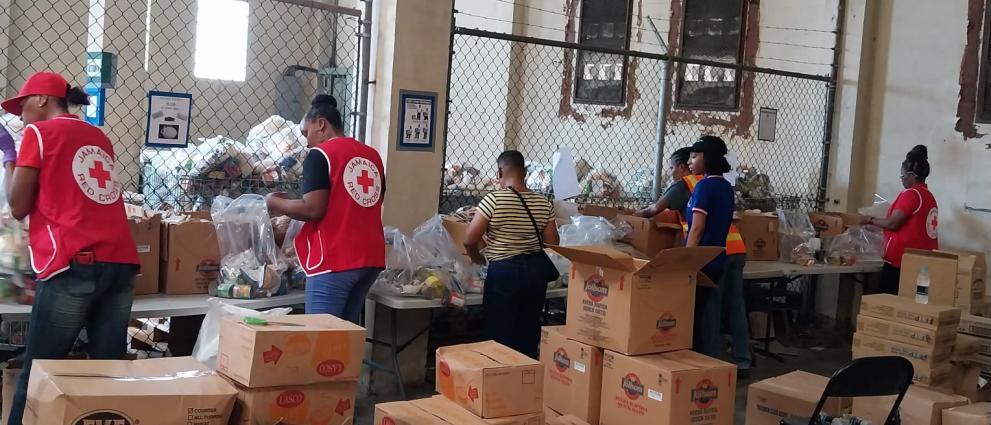The EU releases close to €1 million in funding in response to Hurricane Beryl in the Caribbean
European Civil Protection and Humanitarian Aid Operations News Article
In response to the impact of Hurricane Beryl in the Caribbean, the EU has released up to €850,000 in humanitarian aid, to address the most urgent needs of the affected populations. The response includes providing emergency shelter and cash assistance for people that have lost their homes or livelihoods, as well as healthcare and water and sanitation services, among other actions.
A new allocation of €200,000 has just been approved to support partners providing assistance in Venezuela, which adds to the €450,000 first approved last week to help populations in Grenada and Saint Vincent and the Grenadines. Furthermore, €200,000 have been channelled via the International Federation of Red Cross and Red Crescent Societies (IFRC), as part of the EU's overall contribution to its Disaster Response Emergency Fund (DREF). The latter funding will support the ongoing efforts of the Red Cross societies in Saint Vincent and the Grenadines, Grenada, Barbados and Jamaica.
This new funding comes in addition to the over €2 million already allocated this year for humanitarian aid and disaster preparedness in the Caribbean region.
To help with the emergency response, on 2 July the EU activated its Copernicus satellite service in rapid mapping mode. 15 maps have been produced so far.
Additionally, via the EU Civil Protection Mechanism, the EU has mobilised 4 experts in environmental damage and debris removal, from Germany, Sweden and Spain. They are joining UN teams in Jamaica, Barbados, Grenada and Saint Vincent and the Grenadines, that are supporting the local recovery efforts. France and Ireland have also sent emergency supplies via the mechanism to both Grenada and Saint Vincent and the Grenadines, such as generators, shelter kits, tarpaulins and water tanks.
“Hurricane Beryl has lashed the Caribbean with unprecedented force at this time of the year, causing widespread suffering and damage in several islands, and heavy rains and floods beyond the Caribbean. This funding will bring much needed relief to people that have seen their lives upended by this disaster. We are mobilising all the means at our disposal to help the most affected populations,” Commissioner for Crisis Management Janez Lenarčič stated.
Background
On 1 July, Hurricane Beryl passed between Saint Vincent and the Grenadines and Grenada, with maximum sustained winds of over 220 km/h. It made landfall on Grenada’s Carriacou Island as a category 4 storm, intensifying later to category 5. It is the first hurricane on record to have reached the highest level 5 so early in the year, though it later decreased in strength as it continued advancing westwards.
On 3 July it passed near the southern coast and Jamaica, and then continued towards the Yucatan peninsula in Mexico and entered the Gulf of Mexico, reaching Texas earlier this week.
The very strong winds and storm surges have caused widespread destruction of homes and infrastructure, notably in Grenada and Saint Vincent and the Grenadines, but also in the other countries including the north of Venezuela, Barbados and Jamaica.
Media release courtesy of European Civil Protection and Humanitarian Aid Operations.
Details
Publication date
12 July 2024
Author Directorate-General for European Civil Protection and Humanitarian Aid Operations (ECHO)
